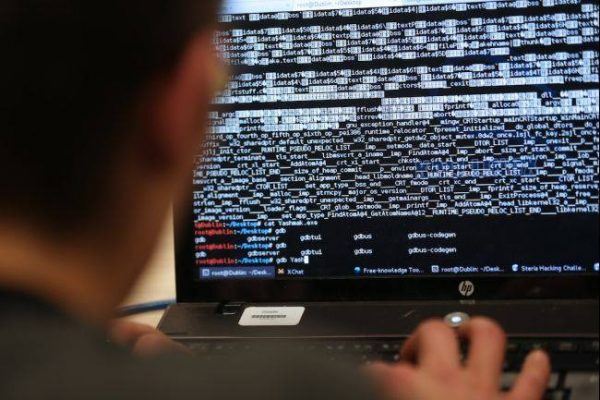Social media has been the wildcard in geopolitics for close to a decade.
The major social media services represented a decisive evolution in communications technology. With one platform, users could share the full range of any given experience as it unfolded, spread awareness, and rally like-minded people to a cause. In short, social media introduced a widespread networking element to media that could be activated in real time.
The political consequences of this revolution are of course felt everywhere, but the effects are playing out differently in the developed world than in more repressive countries. In a country like the US, the challenge has been one of reorienting to a new communications landscape. Epic battles of ideas are played out over the online forums. Donald Trump makes major policy announcements over Twitter. The question is about adapting to an unavoidable technological revolution. In other nations, the reaction has been less about acclimating and more about resisting.
This schism has been most pronounced in the Muslim world. The battle and all its unforeseen consequences continue today.
Back in April, the Iranian government passed a law banning the use of the popular messaging app, Telegram. State- controlled television announced that due to “national security concerns” the Iranian legislature outlawed the application. Authorities had been weighing the ban of Telegram since anti-government protests sprung up in January. Ultimately, the protest movement was contained by the Revolutionary Guards and their affiliated volunteer Basij militia. At the time, Telegram was temporarily blocked after it became apparent demonstrators were communicating via the app. Of course these “national security” issues were the supporting role the app has played in anti-regime activities over the recent period. This includes both the organizing and coordinating of activists, as well as the exposure of the brutality of the Iranian government to the world.

It is important to understand the impact the ban had on ordinary citizens in Iran. Telegram has an estimated 40 million users in the country. That means half the population of the Islamic Republic had the app installed, a segment that almost certainly included the entire young-adult-to-middle-age demographic. The equivalent would be the US Senate banning the use of WhatsApp, Viber, and Skype all at the same time. What’s really interesting to note is Iranian authorities had the gall to blame the decision on the “complaints of citizens” concerned that Telegram was being used for illicit activities.
When any government attempts to uproot a social phenomenon by force—especially one so deeply rooted in the day- to-day lives of the population—it will ultimately lead to a slew of unforeseen consequences. Iran’s move on Telegram is no exception. The backlash on the Telegram ban highlights the downward spiral in which the country’s ruling class finds itself in regards to restricting information and other major elements of the nations functions. It is a trend that in many respects is beyond their control.
The Clamp Down
In a recent publication, the New York-based Center for Human Rights in Iran (CHRI) reported the economic effects that have emerged from banning Telegram. While Iranian’s have certainly integrated modern technology into their society, the way the economy operates is still, by Western standards, highly informal. Due to its popularity, Telegram became a major part of the very infrastructure of the Iranian system. Companies advertised services through the app. Banks sent notifications to their account holders. Government offices even used the app to transfer important documents and reports. “Businesses small and big were using it as a way to communicate, advertise, and actually do deals,” said CHRI director Hadi Ghaemi.

Because statistics and other forms of data on Iran’s economy are harder to come by, it is difficult to put numbers to the ban’s impact. Creatively, CHRI went directly to the people in order to assess its effects. One interview was with a 36-year-old, given the name “Zahra” in the report, who works for a private medical training company. According to Zahra, the firm used the application to organize classes training 4,000 doctors in Iran, as many doctors were unable for various reasons to gain regular access to the internet through PCs or laptops. One government employee identified as “Ahmed” explained that Telegram had completely replaced email as a form of communication between offices. Allegedly, the app was used to send everything from “files, reports, and letters” to “office communications.”
The Digital Police State
We’ve seen a similar pattern before. Anti-regime sentiment hits social media and the state scrambles to crack down.
The so-called Arab Spring of seven years ago was the first instance that showed just how consequential social media and digital communication platforms can be when it comes to political protest movements. Networks formed online were crucial in organizing a core group of activists in countries that actually succeeded in overthrowing their authoritarian overlords such as Tunisia and Egypt. Ironically, the control these nations exerted on traditional modes of media such as television and radio actually strengthened the power of social media by funneling more users to those platforms. Take Egypt as an example. Though most of the country is disconnected from the Internet, 84 percent of those who are online reported they visited social networking sites for news about Egypt’s political situation during the period of upheaval.
Syria was the country that likely responded the most severely to online communication on the part of activists. The government had good reason to do this. Documentation of the oppressive crackdown has been left to citizen journalists, armed with smartphones and standard messaging and video apps such as Skype. Is was in this way that international media got ahold of all the initial news coming from the country as the Civil War began to unfold. Understanding the power of social media both in organizing activists inside the country and reporting the horrors of the government crackdown internationally, the government snapped into action. It began with the targeting of individual citizen journalists. Many of these men and women were essentially assassinated while filming at rallies and other events. Then the Assad regime took it up a notch.

Syria set up an institution within the defense establishment with the goal of disrupting online communications of activists and political dissidents. The Syrian Electronic Army (SEA) first emerged in mid-2011. Over the years, the group executed a wide range of attacks on various targets, using spamming, website defacement, malware, phishing, and denial-of-service attacks. The more famous attacks by the SEA have been the propaganda hit-jobs on famous media outlets and educational institutions. Organizations ranging from CNN, to Facebook, to Harvard University have been targeted by the group. Less known, however, were the operations to silence reporters and other ad hoc media groups in Syria. SEA would target individual users as well as group sites, in some cases getting their hands on the entire Internet archives and deleting them. Ultimately, despite all its efforts, the regime was not able to thwart social media from playing a role in the conflict that ensued in Syria. Citizen journalism continued to be a key factor in disseminating information on the conflict. Organizations like the RBSS (Raqqa is Being Slaughtered Silently) have gained international recognition. The regimes efforts were fruitless and only served to further delegitimize it on the world stage.
Shifting back to Iran, we can see a similar story emerging. The regime is fully aware of the effect the collective PR campaign of its citizens is having on the country’s image. This is not a good thing for the government to have to deal with right now. Trump’s pullout from the Joint Comprehensive Plan of Action (JCPOA) has forced Iran into trying to keep the treaty together on the basis of its other European signatures. Having the persona of an oppressive dictatorial regime attached to you is not helpful for garnering international support. In addition to this diplomatic challenge, Iran is beginning to face the real-world consequences of the Iran deal pullout. The looming American sanctions are already beginning to take their effect. The Iranian currency has been on a serious decline for a while, exacerbated by the prospect of returning sanctions. The rial has lost half its value since the end of last year. And Iranians are not happy. The largest protests in Iran in the past six years are now taking place in the capital over the deteriorating economy.
The current situation in Iran is a strange one: because of Iran’s international standing, the country’s economy is in crisis. This crisis has only been amplified by the recent ban on Telegram and other past bans on social media applications. But those very bans have been ineffective in covering up the brutal government crackdown on activists protesting the nation’s precarious situation.
Someone should let President Rouhani know: the dam has broken. The waves cannot be kept at bay. In today’s technological reality, for better or for worse, governments cannot control the information flow within their countries. Legal bans do not magically bring desired realities into being.
The world has a front row seat to view how Iran will go about dealing with its increasingly complicated position.
















